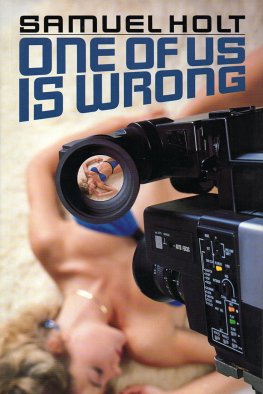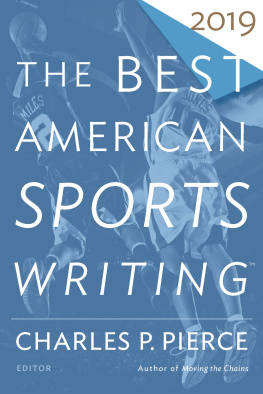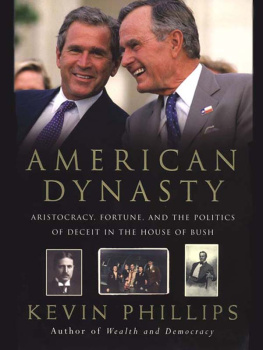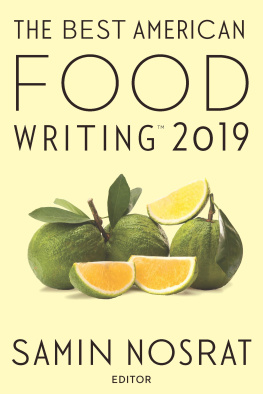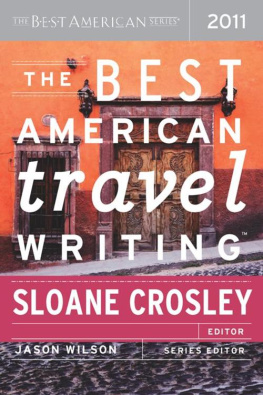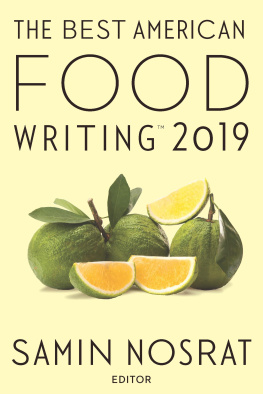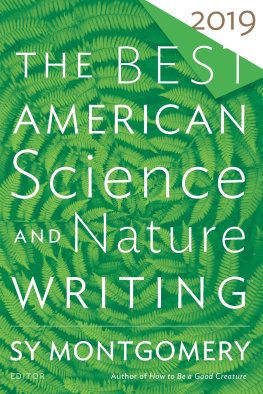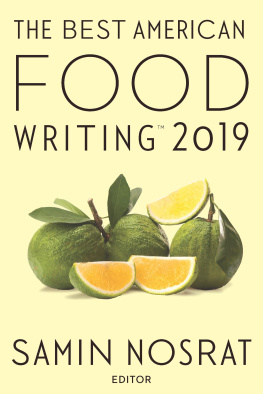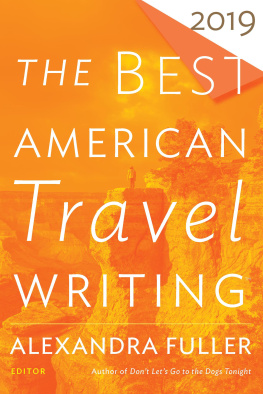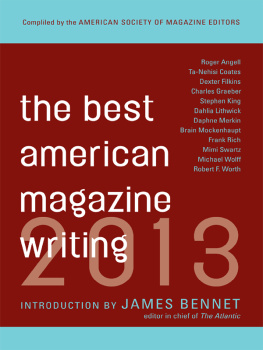Sid Holt - The Best American Magazine Writing 2019
Here you can read online Sid Holt - The Best American Magazine Writing 2019 full text of the book (entire story) in english for free. Download pdf and epub, get meaning, cover and reviews about this ebook. year: 0, publisher: Columbia University Press, genre: Detective and thriller. Description of the work, (preface) as well as reviews are available. Best literature library LitArk.com created for fans of good reading and offers a wide selection of genres:
Romance novel
Science fiction
Adventure
Detective
Science
History
Home and family
Prose
Art
Politics
Computer
Non-fiction
Religion
Business
Children
Humor
Choose a favorite category and find really read worthwhile books. Enjoy immersion in the world of imagination, feel the emotions of the characters or learn something new for yourself, make an fascinating discovery.

- Book:The Best American Magazine Writing 2019
- Author:
- Publisher:Columbia University Press
- Genre:
- Year:0
- Rating:5 / 5
- Favourites:Add to favourites
- Your mark:
- 100
- 1
- 2
- 3
- 4
- 5
The Best American Magazine Writing 2019: summary, description and annotation
We offer to read an annotation, description, summary or preface (depends on what the author of the book "The Best American Magazine Writing 2019" wrote himself). If you haven't found the necessary information about the book — write in the comments, we will try to find it.
Sid Holt: author's other books
Who wrote The Best American Magazine Writing 2019? Find out the surname, the name of the author of the book and a list of all author's works by series.
The Best American Magazine Writing 2019 — read online for free the complete book (whole text) full work
Below is the text of the book, divided by pages. System saving the place of the last page read, allows you to conveniently read the book "The Best American Magazine Writing 2019" online for free, without having to search again every time where you left off. Put a bookmark, and you can go to the page where you finished reading at any time.
Font size:
Interval:
Bookmark:
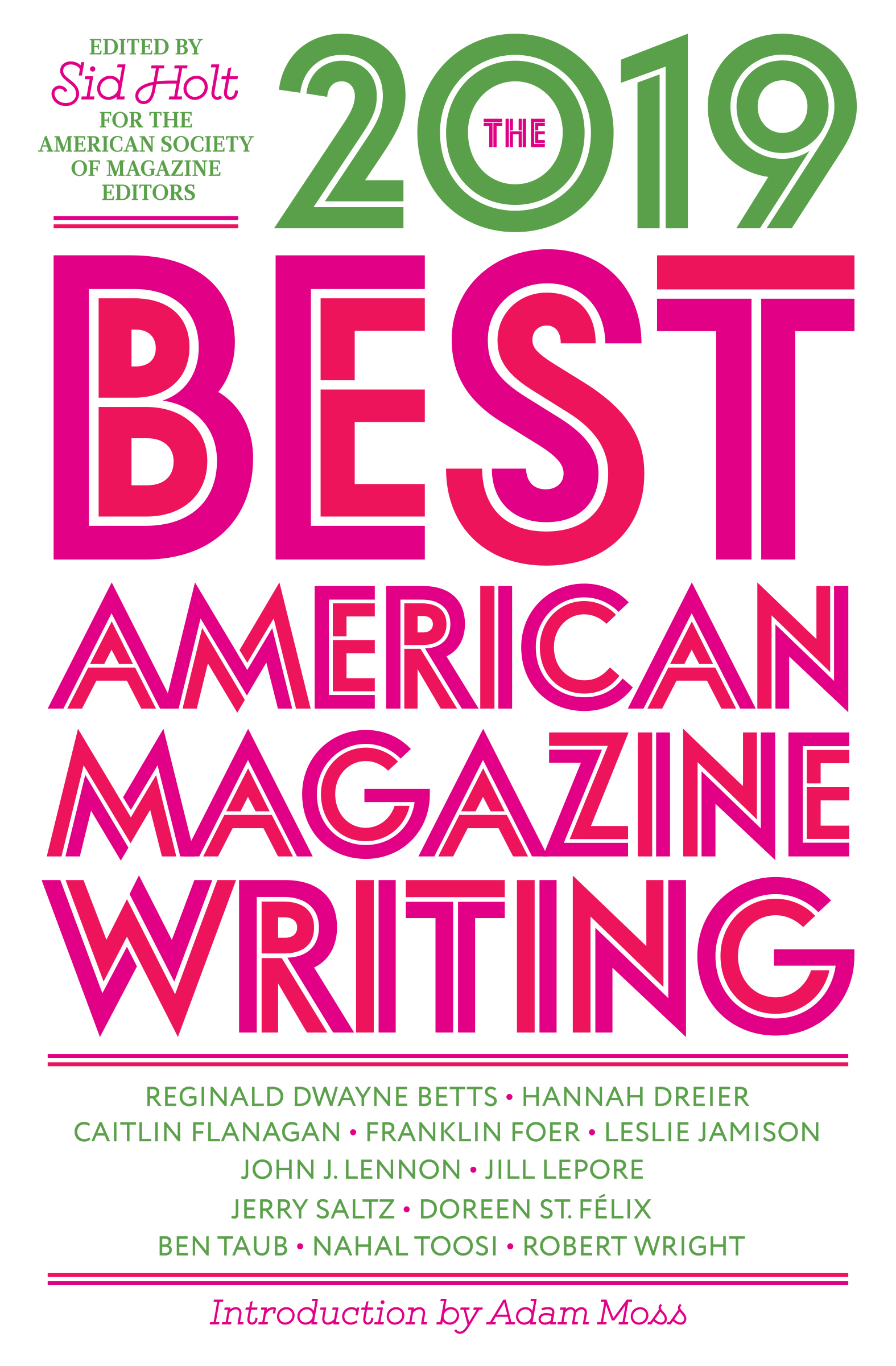
THE BEST AMERICAN MAGAZINE WRITING
2019
THE BEST AMERICAN MAGAZINE WRITING
2019
Edited by Sid Holt for the American Society of Magazine Editors
Columbia University PressNew York
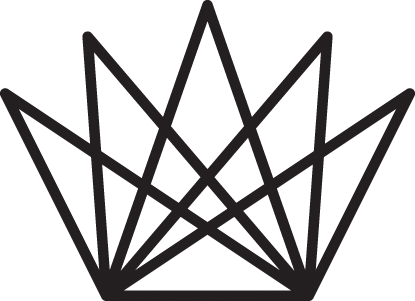
Columbia University Press
Publishers Since 1893
New YorkChichester, West Sussex
cup.columbia.edu
Copyright 2019 the American Society of Magazine Editors
All rights reserved
E-ISBN 978-0-231-54866-3
Library of Congress Cataloging-in-Publication Data
ISSN 1541-0978
ISBN 978-0-231-19001-5 (pbk.)
A Columbia University Press E-book.
CUP would be pleased to hear about your reading experience with this e-book at .
Cover design: Nancy Rouemy
Contents
Adam Moss
Sid Holt, chief executive, American Society of Magazine Editors
Hannah Dreier
ProPublica , copublished with New York
F INALIST Public Interest
Franklin Foer
The Atlantic
F INALIST Reporting
Mark Arax
The California Sunday Magazine
F INALIST Feature Writing
Ben Taub
The New Yorker
W INNER Reporting
Nahal Toosi
Politico
F INALIST Reporting
Laura Parker
National Geographic
F INALIST Public Interest
Caitlin Flanagan
The Atlantic
F INALIST Columns and Commentary
Jill Lepore
The New Yorker
F INALIST Essays and Criticism
Doreen St. Flix
The New Yorker
W INNER Columns and Commentary
John J. Lennon
Esquire
F INALIST Feature Writing
Robert Wright
The Marshall Project with Vice
F INALIST Columns and Commentary
Reginald Dwayne Betts
New York Times Magazine
W INNER Essays and Criticism
Jerry Saltz
New York
W INNER Leisure Interests
Kasey Cordell and Lindsey B. Koehler
5280
W INNER Personal Service
Jeff MacGregor
Smithsonian
F INALIST Feature Writing
Leslie Jamison
Virginia Quarterly Review
F INALIST Essays and Criticism
The ASME Award for Fiction
McSweeneys
W INNER ASME Award for Fiction
Adam Moss
I grew up during the golden age of magazines. It was the late sixties. I was eleven. My parents were charter subscribers to New York magazine, and I remember flipping through one of the early issues, which I had picked up out of boredom, and finding myself unexpectedly excited. The magazine was sardonic, a little bratty, and very smart, and I, an ordinary misfit with outsized curiosity, didnt take long to realize it was much more entertaining than television (which had been occupying all of my downtime; for a budding adolescent with nothing but downtime, that was a lot of television). The writing in New York was showy and funny. It had what I later understood magazine people called voicealso swagger and, crucially, confidence . And because that was my first experience with magazines, those were properties I associated with the form. The writersTom Wolfe, Gloria Steinem, Jimmy Breslinwere in many ways big names, almost as big as their subjects: Richard Nixon, Leonard Bernstein, and Joe Namath, to name a few. I eagerly awaited each new piece of cultural assassination (thats what this kind of magazine did at the time), and when a new issue arrived, I would cackle at the sarcastic headlines on the cover, feel connected to the thrilling counterculture that was going on outside my personal purview, and grow, issue by issue, more sophisticated.
But it wasnt just New York . My parents were friends with an ad guy who used to get magazines for free, and they were piled high in his den: Rolling Stone , Ramparts , Harpers , and Esquire . To a new magazine fanboy like me, his house was like a private toy store. Esquire was even more electric to me than New York and I would sit in the corner during my visits and devour it, reading Michael Herr on Vietnam and Nora Ephron on breasts, hers and others, mesmerized by the covers which were perfect expressions of antiestablishment poster art. I could list some examples of its genius, but if you are reading this book and therefore a lover of magazines, it is likely that that is unnecessaryyou know every great Esquire cover.
Magazines then were at the epicenter of the culture, and you know that because if you are a certain generationmine, give or takeyou recognize that period as the golden age. And when the times shifted and the Vietnam War ended and Watergate came and went and Jimmy Carter became president, the times got boring and so did magazines. And the people who grew up with these magazines and learned to love them because their countercultural swagger was so alluring began to look back at this era through a fog of mist: these magazines would never return again. Nor, by the way, would their youth.
Eventually I would become an editor first at Esquire and then at New York , and I would have the opportunity to pore over the back issues of both those magazines, and you know what? There was a lot of greatness there, but in retrospect it all seemed a little sophomoric. Much of what was published was crap.
I came of age as an editor during the golden age of magazines. It was the early eighties, and I was in my twenties. I worked at Rolling Stone and Esquire , and instead of covers skewering the establishment, magazines were full of movie stars and the covers were bright and sexy and fun. Reagan was president, and people did a lot of coke. Mostly, though, there was a lot of money oozing around, and magazines were thick and smelled of perfume and confidence, with big expensive photo shoots and big expensive stories. Editors (not me, but still) traveled around in town cars and went to a lot of parties, and the whole world of magazines seemed romantic, not just to those who worked in them but to readers as well. Magazines were glitz and fizz and buzz. And if you were a certain age and came of age flipping through these huge tomes of fabulousness, you would pine for them when they went away, which, of course, they did.
And you know what? A lot of what was published was crap.
I started a magazine during the golden age of magazines. It was the late eighties now, and I was thirty. The magazine was called 7 Days I doubt you remember it, but it came along around the same time as a great, satiric magazine you probably do remember called Spy . Spy was mean and fun and fit the times like a glove. But there were plenty of other start-ups because everybody wanted to fund and make and read magazines. There was Egg and New York Woman and Fame . Annie Leibowitz took a picture for Vanity Fair of all the new editors of all the new magazines. There were more than twenty of us.
And you know what? Nearly every one of those magazines went out of business.
It took a while for magazines (there were still plenty) to dig themselves out of the recession that had done the damage, but eventually they dug until another recession hit, and then they climbed back from that, too. In the meantime, there was 9/11 and the Iraq War. I became editor of the New York Times Magazine and, later, New York . Times changed again. Barack Obama became president. Magazines became more optimistic, and business was good; magazines were still flush. A lot of journalism was published, some wonderful, some not. And a great big story was emerging that was irresistible to cover: the racing pace of new technology and its effect on all corners of life. Magazines wrote about the miracle of the internet, and at first the coverage was giddyafter all, journalism feeds on change, and there was plenty of change to write about.
Font size:
Interval:
Bookmark:
Similar books «The Best American Magazine Writing 2019»
Look at similar books to The Best American Magazine Writing 2019. We have selected literature similar in name and meaning in the hope of providing readers with more options to find new, interesting, not yet read works.
Discussion, reviews of the book The Best American Magazine Writing 2019 and just readers' own opinions. Leave your comments, write what you think about the work, its meaning or the main characters. Specify what exactly you liked and what you didn't like, and why you think so.

